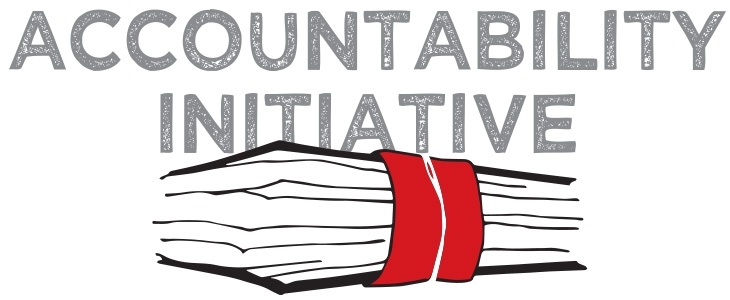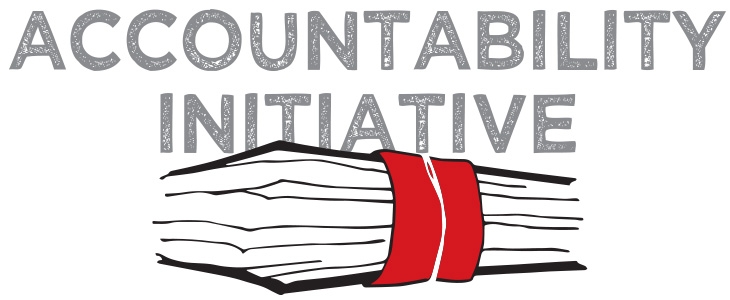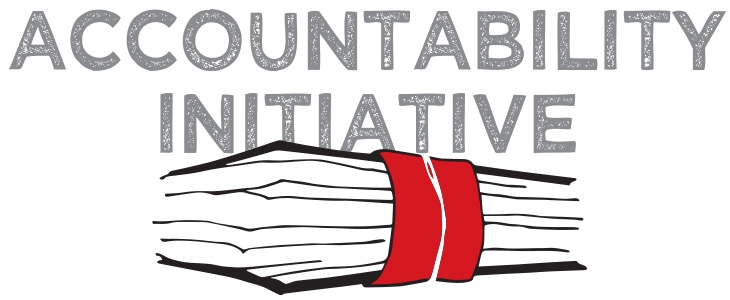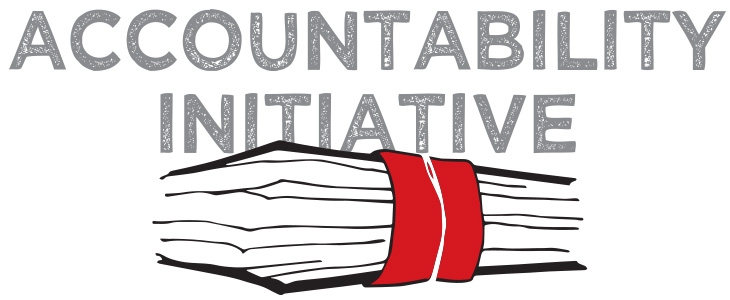Madhav Chavan, Founder, Pratham and Anit Mukherjee, National Institute of Public Finance Policy talk to Bloomberg UTV news about the upcoming budget and the need for the government to spend more on education.
Archives: Blog
Local-Level Accountability: Lessons from Latin America
 Suvojit Chattopadhyay
Suvojit Chattopadhyay
Expectations of gains from citizen participation in governments is a strong motivator for proponents of democratic decentralisation. These expectations need to be realistic, as experiences with local governments in various contexts have shown. One of the measures of local-level accountability is the level of corruption in local government. A 2009 NBER paper by Ferraz and Finan asks whether electoral accountability can reduce corruption in Brazil. They find that local government officials facing re-election are significantly less corrupt than those who are not, with the former witnessing corruption levels that are, on average, 27% lower than the latter.
 Overall, the findings suggest that electoral rules that enhance political accountability play a crucial role in constraining politician’s corrupt behavior even in an institutional context where corruption is pervasive and elites dominate local politics.
Overall, the findings suggest that electoral rules that enhance political accountability play a crucial role in constraining politician’s corrupt behavior even in an institutional context where corruption is pervasive and elites dominate local politics.
The importance of electoral accountability is also brought out in a recent paper by Merilee Grindle, which discusses local-level accountability in Mexico. In order to determine the chances of popular participation translating into accountable governments, Grindle suggests we ask the three following questions –
1. Can citizens use the vote effectively to reward and punish the general or specific performance of local public officials and/or the parties they represent?
2. Can citizens generate response to their collective needs from local governments?
3. Can citizens be ensured of fair and equitable treatment from public agencies at local levels?
In other words, to what extent do citizens have recourse to sanctions, benefits, and rights when local governments assume more responsibilities and political systems become more competitive?
Grindle points out that the ability of communities to reward and sanction through elections; employ strategies to secure benefits from public institutions/officials; and to demand rights is dependent on their specific experiences of participation in governance over the years. Of course, electoral accountability is not all that straightforward. Limits on terms of elected local government members is a constraint to people’s power to sanction. Emergence of a perverse culture of patronage politics is another hindrance to effective electoral accountability. On the other hand, the potential gains from elections are also significant –
…the increased importance of competitive elections in Mexico’s municipalities also provided opportunities for new leadership groups to reach public office, some of whom had strong commitments to introducing more participatory and responsive forms of governance. As experience with more democratic local elections increases, it may well be that ideas about the right to good performance will become more prominent. Additionally, the accountability mechanisms introduced in a number of municipalities from the top down may become more institutionalized over time and thus provide more focus on good performance as an everyday expectation.
Suvojit Chattopadhyay works for Innovations for Poverty Action, Ghana. This piece has been cross-posted from his blog“On My Way”.
First Global Conference on Transparency Research: Call for papers
 The First Global Conference on Transparency Research. takes place at Rutgers University-Newark on May 19-20, 2011. The deadline for proposals is November 30, 2010. Information on the conference and the Call for Papers is provided here: http://tinyurl.com/2uoq44v
The First Global Conference on Transparency Research. takes place at Rutgers University-Newark on May 19-20, 2011. The deadline for proposals is November 30, 2010. Information on the conference and the Call for Papers is provided here: http://tinyurl.com/2uoq44v
 The advisory committee for the First Global Conference on Transparency Research is pleased to announce Professor Christopher Hood as the keynote speaker. Dr. Hood is the Gladstone Professor of Government and Fellow of All Souls College Oxford. He has written extensively on the topics of transparency and accountability, and co-editedTransparency: The Key to Better Governance (Oxford University Press, 2006). The keynote speech is sponsored by Governance: An International Journal of Policy, Administration and Institutions.
The advisory committee for the First Global Conference on Transparency Research is pleased to announce Professor Christopher Hood as the keynote speaker. Dr. Hood is the Gladstone Professor of Government and Fellow of All Souls College Oxford. He has written extensively on the topics of transparency and accountability, and co-editedTransparency: The Key to Better Governance (Oxford University Press, 2006). The keynote speech is sponsored by Governance: An International Journal of Policy, Administration and Institutions.
Travel assistance
Conference organizers will provide hotel accommodations and on-site meals for all individuals presenting papers. A limited number of travel bursaries are available and supported by Canada’s International Development Research Centre, the Open Society Institute’s Right To Information Fund, and the World Bank Institute. Information on travel funding is available on the conference webpage.
For more details contact:
Professor Suzanne J. Piotrowski
Conference Chairperson
School of Public Affairs and Administration
Rutgers, The State University of New Jersey
111 Washington Street, Newark, NJ 07102-3026
Ph. 973.353.5199, Fax 973.353.5907
New RTI Act Rules Top Secret?
 It appears that the Government of India is attempting to draft a new set of Rules under the Right to Information Act, 2005. The minutes of a meeting held at the Central Information Commission (CIC) on 16th November 2010 indicate that it has been asked to comment on a set of draft RTI Rules prepared by the Government of India. Specifically, the minute’s state:
It appears that the Government of India is attempting to draft a new set of Rules under the Right to Information Act, 2005. The minutes of a meeting held at the Central Information Commission (CIC) on 16th November 2010 indicate that it has been asked to comment on a set of draft RTI Rules prepared by the Government of India. Specifically, the minute’s state:
“Agenda 1: Draft RTI rules- for discussions
Commission discussed the draft rules and suggested some modifications. The changes as suggested by the Commission shall be incorporated and sent to the Government at the earliest. (Action: Secretary/JS (law)) “
 In the 21st century where the RTI Act seeks to establish a regime of transparency, rules governing the processes of seeking and obtaining information are being discussed by only a handful of people behind closed doors. There is no official word on what the draft RTI Rules contain. Till date neither the Department of Personnel and Training (DoPT) the administrative department for the RTI Act, nor the CIC, have taken any steps to consult with the people of India on these draft Rules. The people of India are the primary stakeholders in India’s democracy and have a deeply vested interest in ensuring that there is transparency in the administration, especially in policy making and implementation. The secrecy surrounding the draft RTI Rules is in clear violation of two decisions of the CIC emphasising the duty of public consultation while drafting laws and policies. Whether the CIC has reminded the DoPT about the imperative of public consultation on these Draft RTI Rules in not publicly known.
In the 21st century where the RTI Act seeks to establish a regime of transparency, rules governing the processes of seeking and obtaining information are being discussed by only a handful of people behind closed doors. There is no official word on what the draft RTI Rules contain. Till date neither the Department of Personnel and Training (DoPT) the administrative department for the RTI Act, nor the CIC, have taken any steps to consult with the people of India on these draft Rules. The people of India are the primary stakeholders in India’s democracy and have a deeply vested interest in ensuring that there is transparency in the administration, especially in policy making and implementation. The secrecy surrounding the draft RTI Rules is in clear violation of two decisions of the CIC emphasising the duty of public consultation while drafting laws and policies. Whether the CIC has reminded the DoPT about the imperative of public consultation on these Draft RTI Rules in not publicly known.
Public Consultation is necessary while drafting legislation or policy: CIC directs the Delhi Government
In July 2010 a single member bench of the CIC directed the Government of the Delhi to fully comply with Section 4 of the RTI Act while formulating draft laws and policies. In this decision the CIC observed as follows:
“A plain reading of Section 4(1) (c) of the RTI Act suggests that every public authority is required to publish or disclose all facts and circumstances which are relevant and taken into account while formulating policies and taking decisions that would affect the public. Section 4(1)(c) of the RTI Act requires proactive disclosure of proposed laws/ policies and amendments thereto or to existing laws/ policies to enable citizens to debate in an informed manner and provide useful feedback to the government, which may be taken into account before finalizing such laws/ policies. Given that the DP Bill” (Delhi Police Amendment Bill) “is a significant legislative change, the relevant public authorities involved in drafting of the said bill had a duty to proactively disclose its contents under Section 4(1)(c) of the RTI Act… The public authority should have disclosed the contents of the DP Bill suo motu and by omitting to do so, the very purpose of Section 4(1) of the RTI Act stands defeated.
Public Consultation is necessary while drafting legislation or policy: CIC full bench directs the Central Government
In September 2010 a full bench of the CIC reiterated this stand and directed the Cabinet Secretariat under the Government of India and the DoPT to take steps to create a mechanism for public consultation on draft laws before they are tabled in Parliament. In this decision the CIC observed as follows:
“The Commission further recommends u/s 25 (5) that Cabinet Secretariat considers amending Part V of Circular No. 1/16/1/2000-Cab of 15.4.2002 to allow for public consultation in appropriate form.”
What does Part V of Circular No. 1/16/1/2000-Cab of 15.4.2002 contain?
The Cabinet Secretariat issued a circular in April 2002 instructing all departments and ministries under the Government of India on the methodology of preparation of Cabinet notes. Drafts of proposed laws or amendments to existing laws are attached to draft Cabinet notes and circulated to the relevant ministries and departments for consultation. Part V refers to the procedure for conducting such inter-ministerial consultations. During such consultations with various ministries the draft Cabinet note is circulated with the classificatory label – “TOP SECRET“. So save a handful of senior officers, all other citizens of India are excluded from this consultation process. The full bench of the CIC directed the Cabinet Secretariat to amend this portion of the circular and create appropriate spaces for public consultation.
Despite the principle of mandatory public consultation having been laid down by the CIC, the DoPT has not yet begun consultation with the people of India on the draft RTI Rules. If the draft is ready for consultation with the CIC which is a body outside of Government, surely it can be opened up for a more widespread consultation with the people of India who are using this law every day. Surely no harm would be done if people’s views are elicited on so important a subject. The Rules lay down the detailing of the framework for accessing information under the RTI Act. The people of India have a right to be consulted on the draft Rules as they are the primary users of the RTI Act. THE PEOPLE OF INDIA HAVE THE RIGHT TO BE CONSULTED NOW.
Venkatesh Nayak is the Programme Coordinator of the Right to Information Programme at the Commonwealth Human Rights Initiative, New Delhi. For CHRI’s alerts on the RTI and related issues click here.
Global Integrity Report 2009 Launched
The Global Integrity Report 2009 has recently been launched. The Report is a tool for understanding governance and anti-corruption mechanisms at the national level.The Global Integrity Report mobilizes a highly qualified network of in-country researchers and journalists to generate quantitative data and qualitative reporting on the health of a country’s anti-corruption framework. Each country assessment contained in the Global Integrity Report comprises two core elements: a qualitative Reporter’s Notebook and a quantitative Integrity Indicators scorecard, the data from which is aggregated and used to generate the cross-country Global Integrity Index. To know more about the report click here.
To Improve Policy Effectiveness
Voters elect governments to solve social problems. Governments design and implement a huge array of programs and allocate huge sum of money every year to ensure the public good s. A sizable literature has developed suggesting that problems in program implementation are a major source of poor government performance, ranging from inadequate coordination between agencies and levels of government to front-line workers who disagree with the program and implement it with less than total enthusiasm.
But do you think, the improved policy effectiveness can be brought in by setting-up of an “Independent Evaluation Office to undertake impartial and objective assessments of the various public programmes and improve the effectiveness of the public interventions”. This year’s budget speech mentions, “It has been decided that it would be an independent entity under a Governing board chaired by the Deputy Chairman, Planning Commission. The IEO would evaluate the impact of flagship programmes and place the findings in the public domain. It would be funded by the Planning Commission.”
Surprisingly there has been no mention to the final step of the implementation chain: explanations of why the state or block level officials do or do not “comply” with these policy objective – meaning that why don’t they behave in ways that are consistent with the objectives of the policy.
Program “officials” frequently fail to act in the way that program designers intended and wanted, even when it appears to be in their self-interest to do so. Contrary to common perception, the single biggest crisis facing the state officials is not corruption, it is lack of capacity. This is true at virtually all levels of government. The officials do not often even have the full statistical base in some of the most vital areas of our well being, from health to urban economies, to be able to make intelligent interventions.
The regulatory demands of the modern economy and the challenges of governance require substantial planning and expenditure towards capacity building at the state and subsequently at the ULB and Panchayat level. It is critical to listen to both what they say and what they do. Every department should be allocated a stipulated some of money to map the challenges faced by each department and then they should make that shortcomings public. This resource mapping will help the government to learn quickly what mistakes of omission or commission (or both) policymakers have made and help in correcting those mistakes.
For any government interested in thinking seriously about effective implementation should begin the conversion by ensuring state’s capability to do all that is expected of it.
Sruti Bandyopadhyay is a Researcher at Accountability Initiative
AI Budget Briefs Series 2010
The Accountability Initiative, Centre for Policy Research is pleased to launch its Budget Briefs Series 2010. The 8 briefs in this series examine trends in social sector allocations and expenditures in the Sarva Shiksha Abhiyan, Mid-day Meal Scheme, National Rural Health Mission, Mahatma Gandhi National Rural Employment Guarantee Act, Water and Sanitation, Food Subsidy, Jawaharlal Nehru National Urban Renewal Mission and the Pradhan Mantri Gram Sadak Yojna.
Is the ban on private tutoring by school teachers justified?
test
Private learning landscape in India: A brief review of the literature and available data
>by Ashish Ranjan
In the month of April and May 2015, there was hardly any academic work happening in schools in Bihar. Thousands of school teachers teaching in primary and secondary government schools (mainly Niyojit or contractual
Financial Inclusion: Please Do Not Forget Our Urban Poor!
Respected Pranab da,
While the nation lauds the Government’s single-minded drive to take banking to rural doorsteps, the Finance Ministry and the RBI are sadly neglecting a key constituency: the impoverished millions on the doorsteps of urban banks, denied access for lack of ‘papers’. Despite the Government’s clarion call to financial inclusion, my friends and I continue to find it difficult – if not impossible – to open accounts for our cooks, maids, drivers and gardeners.
Breaking the Gordian knot of identity and address documents
Partly responsible are the Reserve Bank of India’s 2002 ‘Know Your Customer’ rules which require banks to check the background of prospective applicants to guard against money laundering and terrorism financing. Applicants must prove both identity and residence through one of six documents. Passport, PAN card, voter’s card, driving license, identity card, or letter from a recognised public authority/ public servant in the first case; and telephone or electricity bill, ration card, bank account statement, or letter from employer/recognised public authority in the second.
Predominantly rural migrants, most of our urban poor do not have the correct combination of identity and address documents necessary to open accounts. The key sticking point is ‘local address’. This I learnt when I tried to open an account for Mahesh, the young Uttaranchali who lives and works in my house. He has a high-school I.D., a ration card, and a voter’s card (three KYC- approved identity documents), but these were insufficient to prove his bona fide. For, they display an Uttaranchal, not a Delhi address. Sona, our Maharashtrian ayah has no documentation at all, so hers was a ‘shut-before-opening’ case.
Recognising this Gordian knot, the RBI relaxed the documentary requirements for small deposit (or ‘no frills’) accounts with a total balance of Rs 50,000. In its Master ‘Know Your Customer’ Circular of July 2009, it ruled that a written introduction/certification from an account holder was sufficient to open such accounts, provided the account was “over six months old and showed satisfactory transactions.”
Continuing violations by urban banks
Yet, eight months later, in direct contravention of this ruling, banks across the country continue to refuse to honour letters of introduction from account-holders/employers as sufficient evidence of identity and address. Bank branches have either not been properly briefed about the July 2009 relaxations, or they are using the 2002 KYC obligations as a convenient smoke-screen to duck opening un-remunerative accounts for the poor. No surprise then that just 2% of our over 33 million ‘no frills’ accounts are urban, as the Skoch Institute estimates. In real terms, this is just 66,000 accounts. Minuscule in the context of India’s urban poor population of between 80 million to 190 million. We could immediately bring much of this population into the formal banking system, merely by pressuring the banks to adhere to the RBI’s July 2009 relaxations. The national drive to financially empower the poor must thus strategically invest in tracking and pushing inclusion in urban areas.
It is essential we start immediately. UNDP’s ‘Indian Urban Poverty Report 2009’ shows India’s urban population doubling from 286 million to 575 million by 2030. More worryingly, it projects continued growth in our urban poor population, due to expanding rural in-migration and lack of public services. Continuing exclusion from formal banking services will only aggravate this unfortunate trend. Bringing the poor into the banks is also essential to establishing their identity within other formal skills and livelihood systems.
The banks’ need for caution is understandable. But our system’s dogged insistence on ‘local address’ is misplaced, given an expanding ATM network and growing geographic mobility. In any case, most small depositors use their accounts primarily to store and save money. Thus, should they vanish with all their money, it is theirs and nobody else’s. Moreover, small deposits do not easily lend themselves to the kinds of scam seen on stock markets.
Domestic workers: the low-hanging fruit
India’s 95-100 million domestic workers present the lowest-hanging fruit in the urban financial inclusion campaign. For, they all have close, organic links to households already within the banking system, significantly reducing the risk for banks. Since 90% of these workers are women, the implications for social empowerment are significant.
This category of worker is also likely to make larger and more regular deposits than most urban and rural poor counterparts. In bigger cities, average domestic worker salaries range from 3,500 to Rs 5,000 and average monthly savings from Rs 500-Rs 1,000. Employers would be happy to pay salaries via recurring monthly deposits. Account holders are likely to make one or two withdrawals a month. Urban ‘no frills’ accounts are thus likely to be continually active, cutting to the heart of the banks’ complaint that only 11% of the nearly 33 million rural accounts are.
The Government must thus do some quick and clever thinking on how to incentivise our banks to, first, admit and, then, effectively serve our urban poor. To quote S.S.Tarapore, “No individual should be denied the right to open an account.” Some ‘carrot’ and some ‘stick’ might be required. But, judging from India’s telecom experience, energetic attention to enforcing banks’ urban ‘universal service obligation’ is more likely to trigger a low-cost system of ‘mass banking’, than crores of Budget spending on technology platforms and rural banking infrastructure.
Premila Nazareth Satyanand is an independent policy analyst.







